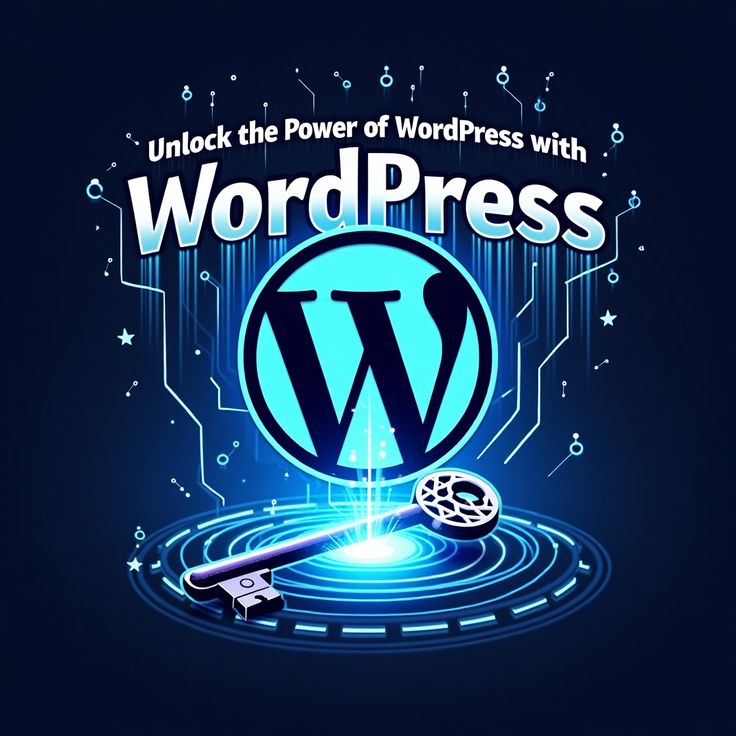WordPress: The Ultimate Guide to the World’s Leading Website Platform
In today’s digital era, having an online presence is essential for businesses, individuals, and organizations. One platform stands out as a go-to solution for creating websites with ease and flexibility: WordPress. Powering over 43% of all websites on the internet as of 2025, WordPress has revolutionized the way we build and manage websites.
This article explores what WordPress is, its key features, the differences between WordPress.org and WordPress.com, and why it’s the most popular content management system (CMS) in the world.
What Is WordPress?
WordPress is an open-source content management system (CMS) that allows users to create, manage, and publish content online. Initially launched in 2003 by Matt Mullenweg and Mike Little, WordPress began as a simple blogging platform. Today, it has evolved into a versatile tool capable of powering everything from personal blogs to complex e-commerce sites and enterprise-level applications.

Open Source Nature
One of the defining characteristics of WordPress is its open-source nature. This means that its core software is free to use, modify, and distribute. The WordPress community consists of thousands of developers worldwide who contribute to its continual improvement, ensuring security, functionality, and performance stay up to date.
WordPress.org vs. WordPress.com
Many beginners get confused between WordPress.org and WordPress.com. Though they share the same name and origin, they serve different purposes.
WordPress.org – The Self-Hosted Solution
WordPress.org offers the self-hosted version of WordPress. Users download the software and install it on their own web hosting server. This option gives users full control over their website, allowing for extensive customization, plugin installation, and monetization opportunities.
Key Benefits of WordPress.org:
- Full control over website files and data
- Ability to install any plugins or themes
- Monetization freedom (ads, affiliate marketing, eCommerce)
- Access to advanced customization (via code)
WordPress.com – Hosted Platform
WordPress.com, owned by Automattic, offers a hosted solution that handles all technical aspects like hosting, backups, and security. It’s more beginner-friendly but comes with limitations, especially on the free plan.
Key Benefits of WordPress.com:
- No need to purchase separate hosting
- Automatic updates and backups
- Ideal for bloggers and small websites
- Paid plans offer increased flexibility
Key Features of WordPress
Whether you’re building a blog, a portfolio, or an online store, WordPress offers a range of features that make web development accessible to all.
1. Themes and Customization
WordPress themes control the design and layout of your site. Thousands of free and premium themes are available, covering a wide range of industries and aesthetics. Users can also customize these themes using the WordPress Customizer or third-party page builders like Elementor and Beaver Builder.
2. Plugins for Extended Functionality
Plugins are essential to WordPress’s flexibility. With over 60,000 plugins in the official repository, users can easily add features like contact forms, SEO tools, analytics, payment gateways, and more—without writing any code.
3. SEO-Friendly Architecture
WordPress is built with search engine optimization (SEO) in mind. Its clean code, customizable permalinks, and responsive themes make it easier for your content to rank on Google. Additionally, popular plugins like Yoast SEO and Rank Math help optimize pages and posts with ease.
4. Mobile Responsiveness
With mobile traffic dominating the web, responsive design is critical. Most modern WordPress themes are mobile-friendly, ensuring your site looks great on all devices.
5. Multilingual Support
Through plugins like WPML and Polylang, WordPress supports multilingual content, making it ideal for global websites.
Use Cases of WordPress
WordPress is not limited to any one type of website. Here are some common use cases:
Blogging
WordPress started as a blogging platform and still excels in this area. Its intuitive post editor, category/tag system, and RSS feeds make it a top choice for content creators.
Business Websites
From small businesses to large corporations, WordPress can support professional websites with contact forms, service listings, portfolios, and more.
eCommerce Stores
With the WooCommerce plugin, WordPress transforms into a full-fledged eCommerce platform. It allows users to sell products, manage inventory, accept payments, and handle shipping.
Membership Sites
Plugins like MemberPress and Restrict Content Pro enable users to create membership-based platforms with subscription access and gated content.
Security and Maintenance
Security is a concern for any online platform, and WordPress takes it seriously. However, since it’s widely used, it can be a target for hackers. That’s why it’s essential to follow best practices:
Best Practices for WordPress Security
- Keep core software, themes, and plugins updated
- Use strong, unique passwords
- Install a security plugin (e.g., Wordfence, Sucuri)
- Regularly back up your site
- Use two-factor authentication for admin logins
Regular Maintenance
Running a WordPress site also means managing updates, backups, and performance optimization. Several tools and services (like ManageWP and Jetpack) help automate these tasks.
Pros and Cons of WordPress
Like any platform, WordPress has its strengths and weaknesses.
Pros
- Free and open-source
- Highly customizable
- Strong community support
- Thousands of plugins and themes
- SEO and mobile-friendly
Cons
- Learning curve for beginners
- Requires ongoing maintenance
- Performance can slow down without optimization
- Security risks if not properly managed
The WordPress Community
WordPress boasts a vibrant, global community. Whether you’re a developer, designer, writer, or entrepreneur, you’ll find meetups, forums, tutorials, and online communities that support your journey.
Key Community Resources
- WordPress.org forums
- Slack channels for developers
- WordCamps – local and international events for users and developers
- Official documentation (the WordPress Codex)
Conclusion
WordPress is far more than a blogging tool—it’s a powerful CMS that continues to dominate the web development landscape. Its flexibility, scalability, and strong ecosystem of plugins and themes make it suitable for virtually any kind of website. Whether you’re launching your first blog or running a multinational eCommerce business, WordPress offers the tools to build, grow, and succeed online.
By understanding its features, strengths, and best practices, you can harness WordPress’s full potential to create a site that truly stands out.

